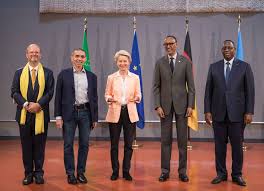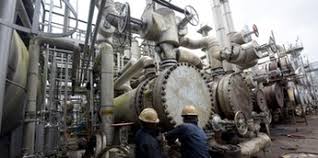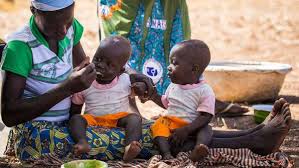The goal of the G20 Compact with Africa summit, which is bringing together leaders from over a dozen African nations, is to support private investment in the world’s poorest, yet rapidly developing, continent.
German government authorities have revealed that German Chancellor Olaf Scholz will be hosting the conference in Berlin, which will feature attendance from French President Emmanuel Macron, Dutch Prime Minister Mark Rutte, and President of the European Commission Ursula von der Leyen, all of whom demonstrate a fresh interest in Africa.
After holding bilateral talks with a number of African nations on Sunday, Scholz—who has traveled to Africa multiple times since taking office in late 2021—will attend a German-African investment summit at Berlin’s Marriott Hotel on Monday morning.
On the second-most populous continent in the world, Europe, the United States, and China are vying for geopolitical clout, vital minerals, and fresh economic prospects.
These include the potential for Africa to produce renewable energy, especially green hydrogen, which might aid its northern neighbor in making the shift to an economy that is carbon neutral. Reducing illegal migration is also seen to depend on the continent’s stability and economy.
Aiming to bring together reform-minded African nations, international organizations, and bilateral partners to coordinate development agendas and talk about investment prospects, the Compact with Africa was established in 2017 during the German G20 presidency.
The African Union, which became a permanent member of the G20 group of the world’s most powerful nations in September, will hold a press conference before the event, which is officially held on Monday afternoon in the German Chancellery.
A German government official stated on Friday, “We will not make a common declaration; we do not want to force our African partners into a tight corset.” “Instead, we want concrete results.”
According to German government representatives, Africa can be extremely helpful to Germany in achieving its green transition, securing skilled workers, reducing illegal migration, and improving supply chain diversification.
African nations have long lamented that, despite Europe’s promise of investment, China really delivers funding without passing judgment on morality. Still, European interest is growing as it looks to diversify supply chains, while Chinese funding to Africa is declining.
German trade with Africa was 60 billion euros ($65.4 billion) in the previous year, increasing 21.7% from 2021 but still a small portion of trade with Asia.
According to a study conducted by KPMG and the German-African Business Association over two-thirds of German businesses wish to grow in Africa.
The G20 Compact comprises the following nations: Ghana, Togo, Benin, Burkina Faso, Rwanda, Democratic Republic of the Congo, Senegal, Guinea, Ivory Coast, Morocco, Tunisia, Egypt, and Ethiopia.




















